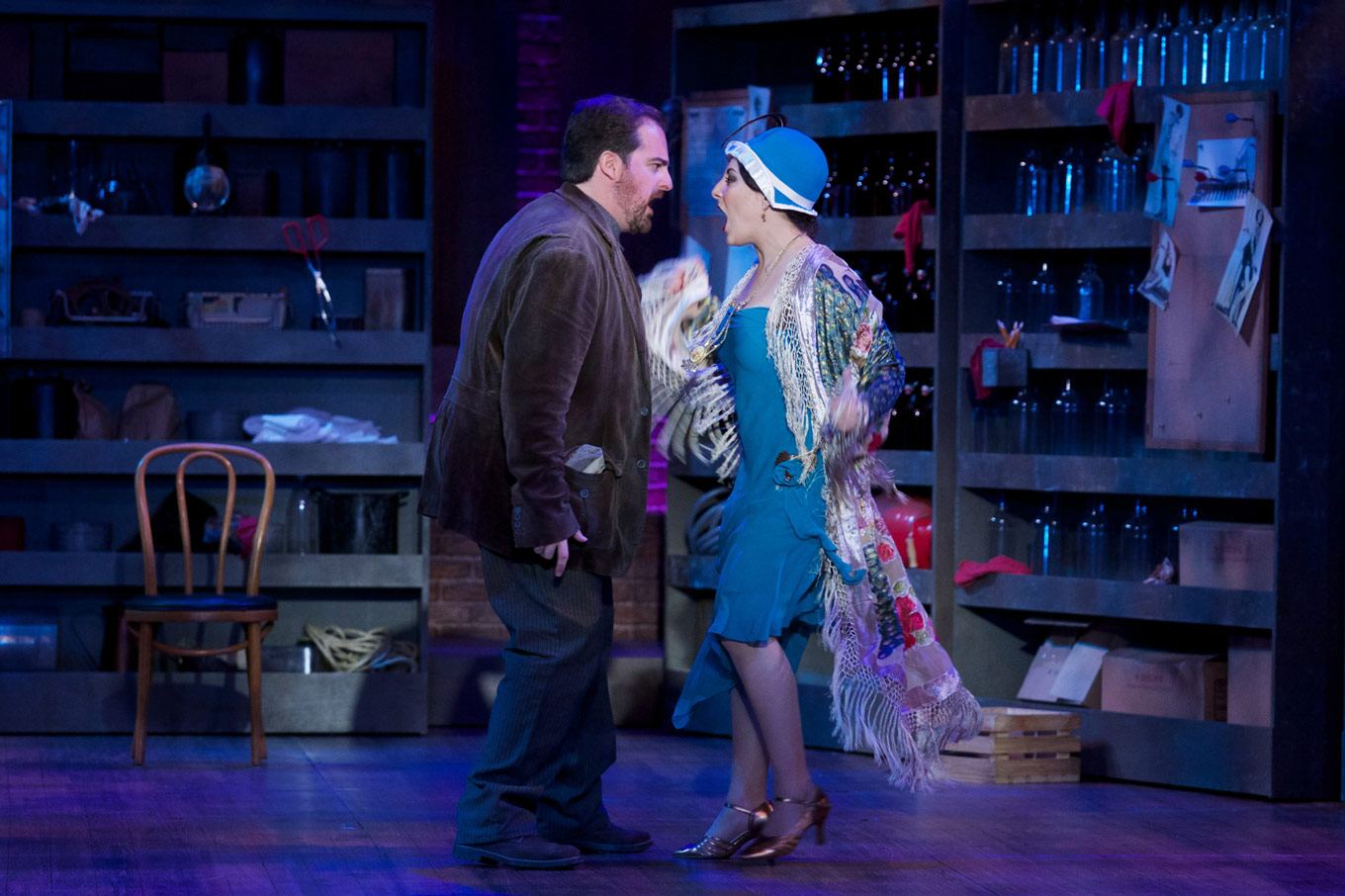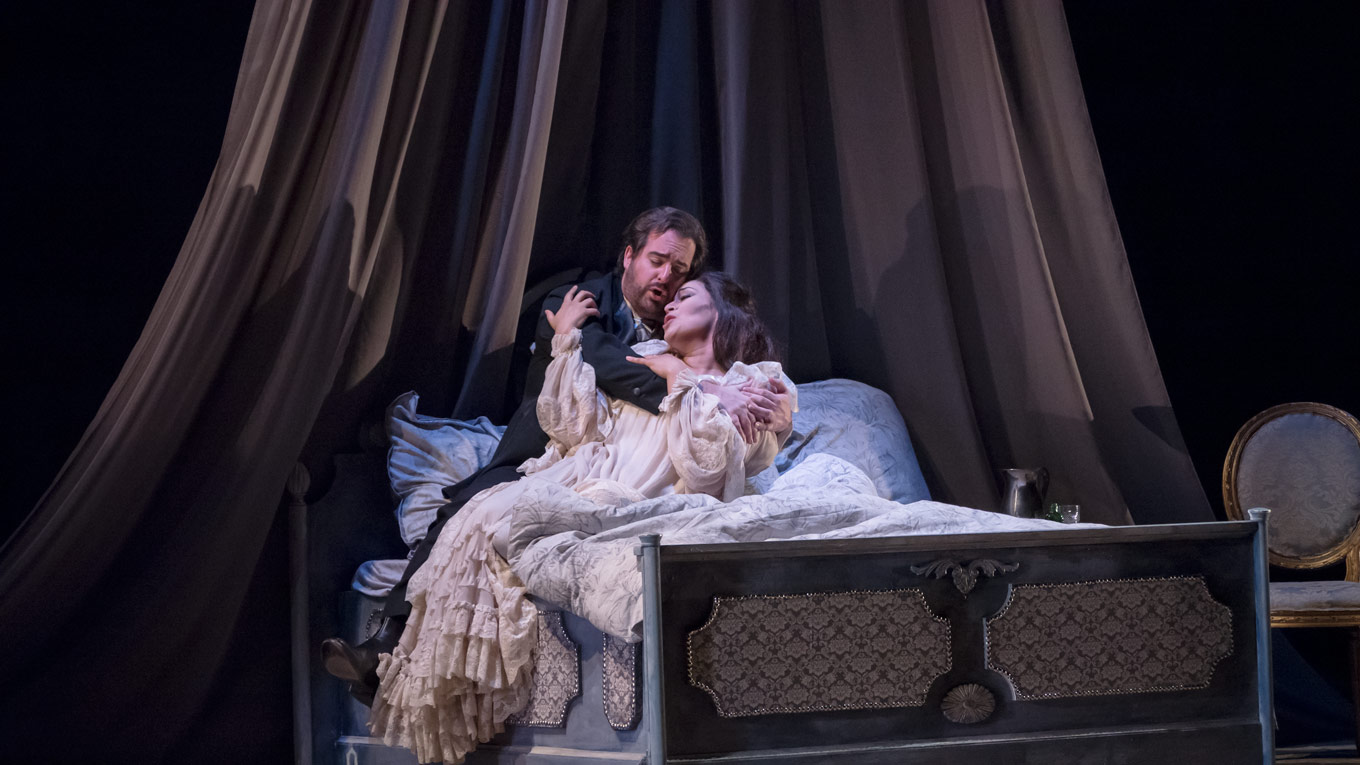
Spotlight on: Rolando Sanz
InterviewTenor Rolando Sanz has an enviable schedule, singing roles like Alfredo in La traviata, Nemorino in L’elisir d’amore, and Rodolfo in La bohème. He reprises Alfredo with Ash Lawn Opera in May, and he’s currently juggling understudy responsibilities at The Metropolitan Opera for their ongoing production of Otello.
Despite his busy schedule, Sanz found time to talk about his bucket list roles, and all the things “good singing” can mean. “One does not need to ”appreciate” singing to know what good singing is…we all know it when we hear it, and the goosebumps are proof positive of that.”
Why do you sing, and why are you doing it professionally?
I became a singer because it was the way I found best to express myself. Some people express themselves best with a paintbrush, or on the soccer field, or by going into politics. Since I was young, I always found my sense of self-expression was connected to music. What began as a hobby as a child has turned into a career as a professional opera singer. And I could not be more thrilled to be consistently working with the best musical artists in the world on a regular basis!
What does “good singing” mean to you? What does it feel like when you achieve it?
A lot of people think that ”good singing” is technically advanced singing. I actually tend to disagree. Good singing to me is singing that makes people stop what they are doing and pay attention to what is being sung. Expressive singing is good singing to me, whether it be Luciano Pavarotti at his prime or seeing Aretha Franklin lay it down singing “Natural Woman” at her tribute performance to Carole King at the Kennedy Center Honors!
One does not need to ”appreciate” singing to know what good singing is…we all know it when we hear it, and the goosebumps are proof positive of that.

What do young singers need to do more of? What should they do less of?
As a young singer, I remember listening to a lot of great singers of the past and present as I learned about classical singing. The more that young singers can spend time in music libraries (not just iTunes!) and learn about the tremendous singers that came before us, the better admirer of our art form they will become. (And the better they’ll understand what it is we are working so hard to move toward in the practice room!)
Less of? Comparing ourselves to others is definitely something that we could ALL do less of, whether it’s classmates in school who place higher in competitions than us, or comparing our own developing voices to those of the masters on the recordings that we listen to. As singers, we are always learning and changing, and our voices continue to change as we age. It’s very important to be true to ourselves and trust what our voices are telling us in terms of technique and repertoire, and to be honest with ourselves about our own strengths and weaknesses. All very hard things to do, but necessary.
Do you have any “bucket list” roles you’d like to sing (realistically or otherwise)?
My realistic dream role (eventually!) would be the title character in Verdi’s Ernani. The music is so classic Verdi and it’s a dream to sing! Non-realistically, I would love to spend 10 years learning Tristan and then singing through it with orchestra, just once. Not likely, but a pipe dream on the bucket list nonetheless.

How do you explain your job to non-music folks?
Explaining what an opera singer does to a non-musician is always an interesting conversation. Once we get past the Viking horns part of the conversation, it then usually turns to Andrea Bocelli or Phantom of the Opera. However, I find that once I am able to explain what an opera singer really is, the other person is usually amazed at how much daily work goes into being a professional musician.
Often folks will wonder what a musician does all day when we’re not on stage performing. It’s very fulfilling to help teach music newbies about what a day is like in the life of a musician, including practice, historical research, translation, coachings, stagings, etc. It is in fact a full time job, that usually far surpasses an 8-hour day!


Comments